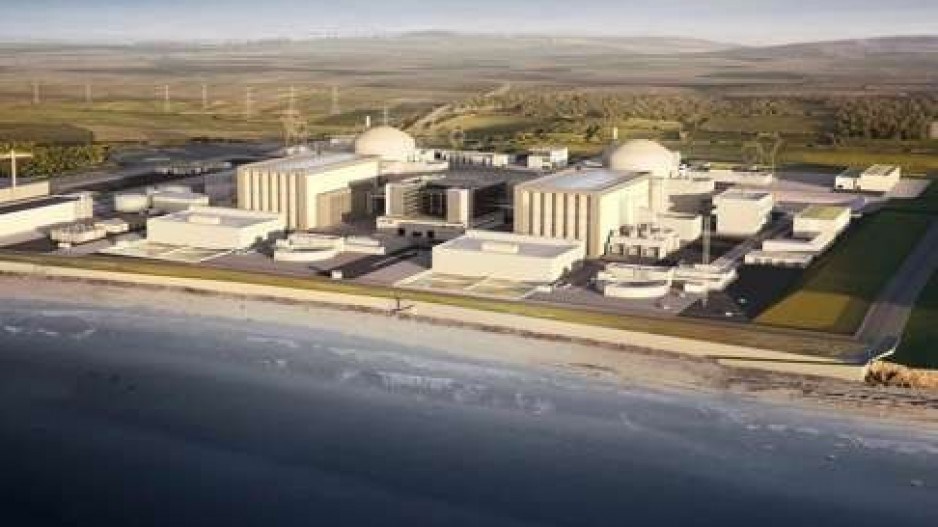China and the United Kingdom have vowed to continue their “golden era” ties, one of the diplomatic legacies of former prime minister David Cameron, despite uncertainties over the Brexit process and discord about Hong Kong.
State Councillor Yang Jiechi, the most senior diplomatic adviser to President Xi Jinping, attended the eighth China-UK Strategic Dialogue in London and talked with UK Foreign Secretary Boris Johnson.
Yang also met Cameron’s successor Theresa May at 10 Downing Street, the prime minister’s official residence. May also reaffirmed in a statement her commitment to developing a “genuine strategic partnership” with China and that priorities for 2017 would be trade and investment, closer cooperation on security and other global challenges such as climate change.
According to a Chinese foreign ministry statement, Yang told May that Beijing was looking forward to greater cooperation with the UK in nuclear power, high-speed railways, finance and innovation, sending a message that it wanted to trade with and invest in the UK even though it is leaving the European Union.
Yang and Johnson also agreed to work more closely in support of reconstruction in Afghanistan, where UK had played the “great game” against Russia in the 19th century and this century joined the US-led war against the Taliban. While China has not been involved militarily, it is exerting growing economic influence in the war-torn country.
Despite the warm words and pledges, however, differences are plain to see.
The UK foreign office said in a statement after the dialogue that Yang and Johnson “exchanged views on human rights and Hong Kong, including the importance of maintaining confidence in ‘one country, two systems’.”
China’s foreign ministry’s statement, however, did not mention human rights nor Hong Kong.
While Johnson tweeted that his talks with Yang were “excellent”, it was only two months ago that Beijing rebuked Johnson’s comments over Hong Kong.
Johnson said in a report in October that he had specific concerns about “integrity” of law enforcement in Hong Kong, which Britain handed back to China in 1997 under an arrangement where the former colony would retain a “high degree of autonomy” including its Common Law legal system. Johnson raised the issue following the disappearance of five Hong Kong residents who sold books critical of Chinese leaders.
In response, China said bluntly that Johnson should mind his own business. “Hong Kong is China’s domestic affair. Foreign countries have no right to interfere,” a foreign ministry spokesman said in Beijing at the time, adding the China “resolutely opposed” the British Foreign Office’s “unfounded criticism” of China.
The incident was just one sign of how Sino-UK relations have cooled from the sizzling moments during President Xi Jinping’s state visit to UK last year when the “golden era” phrase was coined.
At the time, the British government rolled out the red carpet for Communist Party chief in such an extravagant way that some blamed London for “kowtowing” to Beijing.
Xi and his wife, Peng Liyuan, were received by Queen Elizabeth at Buckingham Palace, while Cameron and Xi dropped into a country pub for a pint with the locals.
In a kind of honeymoon moment for the two nations, Britain – to Washington’s displeasure – joined the Chinese-led Asia Infrastructure Investment Bank (AIIB). China picked up London as a key offshore market to issue yuan bonds, and Xi’s visit was said to result in deals worth £40 billion (HK$384 billion), including the controversial Hinkley Point nuclear power plant project.
The referendum result to leave the European Union, followed by a government reshuffle, has brought new uncertainties to Sino-UK relations. The newly-installed UK government under May appeared to be less zealous in being too close to Beijing.
The AIIB, Beijing’s creation to further its geopolitical ambition, has not made real big impact since its official launch, the offshore yuan market in London is lukewarm as the yuan continues its slide against the dollar, and the Hinkley Point project triggered heated debate within UK about foreign control over strategic resources – although May finally approved the project.
The “golden era” relations were further tainted by a leaked video clip, in which Queen Elizabeth II accused Chinese officials of being “very rude” to the British ambassador during Xi’s visit. And The Plough at Cadsden, the 16th-century Buckinghamshire pub where Xi and Cameron shared a drink, was reportedly sold to Chinese investors.
Read the original article on the South China Morning Post.




